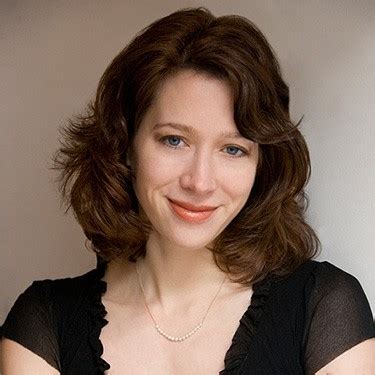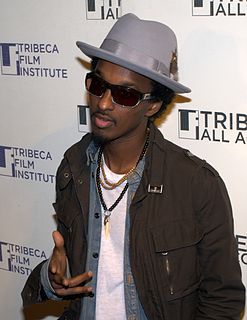Цитата Мари Руткоски
Одна из вещей, которые всегда очаровывали меня в Ренессансе, заключалась в том, что это было время как великих научных открытий, так и суеверий и веры в магию. Итак, это был период, когда Галилей изобрел телескоп, но также и время, когда сотни людей были сожжены на костре, потому что люди думали, что они ведьмы.
Связанные цитаты
Я старомоден. Я думаю, что Уильям Блейк и люди эпохи Возрождения были разнополыми. Посмотрите на да Винчи, он занимался наукой; а Микеланджело увлекался поэзией. Оба они были художниками и скульпторами, но также занимались архитектурой. Честно говоря, я не знаю, что происходило в 60-х и 70-х годах. Если вы пели рок-н-ролл в Америке в то время или занимались самовыражением через подобную музыку, то многие думали, что вы не можете быть артистом. Это мышление архаично.
Невозможно не волноваться при мысли об эмоциях человека в определенные исторические моменты приключений и открытий — Колумба, когда он впервые увидел западный берег, Писарро, когда он смотрел на Тихий океан, Франклина, когда электрическая искра исходила от веревку своего воздушного змея, Галилей, когда он впервые направил свой телескоп на небеса. Такие моменты дарованы и изучающим абстрактные области мысли, и высоко среди них должно быть поставлено то утро, когда Декарт лежал в постели и изобретал метод координатной геометрии.
Я вспоминаю некоторые горшки, которые мы делали, когда только начинали гончарное дело, и это были довольно ужасные горшки. В то время мы думали, что они хороши; они были лучшим, что мы могли сделать, но наше мышление было настолько элементарным, что горшки также обладали этим качеством, и поэтому в них нет того богатства, которое я ищу в своей работе сегодня. Добиваюсь ли я этого все время, это другой вопрос, потому что я не думаю, что человек может работать на высшем уровне 100 процентов времени.
Наиболее активный период колдовских испытаний совпадает с периодом более низкой, чем средняя температура, известной климатологам как «малый ледниковый период». для козла отпущения перед лицом смертельных изменений в погодных условиях. «Ведьмы» стали мишенью для обвинений, потому что существовала культурная структура, которая позволяла их преследование и предполагала, что они могут управлять погодой.
Те, кто хочет принять законы против учения об эволюции, должны также принять законы против гравитации, электричества и неразумной скорости света, а также должны ввести пункт, запрещающий использование телескопа, микроскопа и спектроскопа или любого другого точного инструмента, который могут быть в будущем изобретены, сконструированы или использованы для открытия истины.
Самое странное в моей жизни то, что я приехал в Америку примерно в то время, когда менялись расовые взгляды. Это было большим подспорьем для меня. Кроме того, люди, которые были наиболее жестоки ко мне, когда я впервые приехал в Америку, были чернокожими американцами. Они высмеивали то, как я разговаривал, как одевался. Я не мог танцевать. Люди, которые были самыми добрыми и любящими меня, были белыми людьми. Итак, что можно сделать из этого? Возможно, это было совпадением, что все люди, которые находили меня странным, были черными, а все, кто не считал меня белыми.
Мы принижаем богатство как природы, так и собственного разума, если рассматриваем великое зрелище нашей интеллектуальной истории как сборник новой информации, ведущей от первобытных суеверий к окончательной точности. Мы знаем, что Солнце является центром нашего маленького уголка Вселенной и что генеалогические узы связывают все живое на нашей планете, потому что эти теории собирают и объясняют так много разрозненной и несвязанной информации не потому, что Галилей направил свой телескоп на луны. Юпитера или потому, что Дарвин прокатился на галапагосской черепахе.
Я вырос в эпоху Возрождения, в очень удачное время, когда величайшая музыка, когда-либо созданная, была также и самой коммерческой. Мы больше никогда этого не увидим, поэтому для меня есть только один критерий — величие. Это все, что меня волнует. То, что я делаю, стремится к величию? Добьюсь я этого или нет, это стопроцентный мой критерий.
Я уверен, что каждый, как и мой опыт, знает, что любое открытие, которое мы делаем о себе или о смысле жизни, никогда не бывает, подобно научному открытию, открытием чего-то совершенно нового и неожиданного; это, скорее, приход к сознательному узнаванию чего-то, что мы действительно все время знали, но из-за того, что мы не хотели правильно сформулировать это, мы до сих пор не знали, что знаем.






































